 |
Michael R Volkert, loved by so many and a friend to many more, died on January 2 at his home from pancreatic cancer. He is survived by his wife, Margaret LeRoux, his son, Mark, daughter, Emily and son-in-law, Josh. Mike is also survived by his brothers Pete and Bill and the extended Volkert and LeRoux families. |
Mike was an Emeritus Professor at UMass Chan Medical School in Worcester, MA. He joined the Medical School’s faculty in 1985 after spending five years as a Senior Staff Fellow at the National Institute of Environmental Health Sciences and three years as a postdoctoral fellow at the University of California, Berkeley. His education included a B.S. from the University of Wisconsin (1971), an M.S. from Iowa State University (1973), and a Ph.D. from Rutgers University (1977).
Mike’s early research focused on the damage caused to DNA by environmental mutagens and the mechanisms cells use to cope with that damage and repair it. This led him to initiate related studies on oxidative damage to DNA and its repair, work that introduced him to the general problem of cellular oxidative stress. Using a clever genetic complementation assay, he identified the key human anti-oxidant genes, defined their roles in the cellular response to oxidative stress, and showed that one of these genes, OXR1, was a central human regulator of the stress response. This discovery led him to develop gene therapy approaches to the amelioration and treatment of neurodegeneration.
At the time of his death, Mike had successfully demonstrated that his AAV-OXR1 gene therapy approach delayed retinal neurodegeneration in a mouse model of retinopathy, a breakthrough strongly suggesting its potential as a general therapy for many human retinal degenerative diseases.
Mike was born in Jena, Germany, in 1949 when it was under the control of the Soviet Union. His parents escaped across the border that separated East and West Germany and emigrated to the U.S. with Mike and his older brother, Egbert in 1952. They arrived in Milwaukee on Christmas Day.
A few years ago, at the request of his children, Mike wrote an account, How I Ever Became Interested in Science. In it he recounted, “I remember laying on the sloped roof at the end of the front porch watching as sputnik flew overhead... seeing a light moving among the stars. Science to me seemed like it must be great fun. You get to do such cool things.”
After graduating high school, Mike left Milwaukee for northern Wisconsin to attend the University of Wisconsin’s campus in Superior. He often said he felt like his own life began in Superior. There, as a freshman, he met Margaret and the two were a team for the next 58 years. They married in 1971 after graduating from The University of Wisconsin–Madison and spent the next 14 years in Iowa, New Jersey, California, North Carolina and finally, Massachusetts as Mike pursued his advanced degrees and began his career as a scientist.
At Rutgers, Mike was mentored by Evelyn Witkin, who remained a dear family friend and adopted grandmother to Mark and Emily until her death in 2023. Mike considered his time at Rutgers pivotal to his development as a scientist. “I learned what I needed to know to be successful as a scientist, how to treat others in the lab, and how to encourage others,” Mike wrote. “I learned how much fun science could be and what a pleasure it is to have a career in science.”
When he joined the faculty at UMass Chan Medical School, Mike wrote, “It was a young faculty... people liked the work I was doing and the diversity of the work they were doing was interesting to me. The enthusiasm and support made me feel that this was the right place for me.” It was, for 39 years until his retirement on March 30, 2024, just days after he received the diagnosis of metastatic cancer of the pancreas.
Mike’s passion for science often spilled over into other areas of his life. As a volunteer at Audio Journal, he developed a weekly program of popular science news. He also applied his laboratory skills to the making of craft beer, to the delight of his family and friends.
Mike loved being on the water; in a kayak, canoe or one of his sailboats. His retirement dream was to sail in the Pacific Northwest with his son. He and Margaret learned to cross country ski in Iowa. After any snowstorm in Massachusetts, they would be out at the Wachusett Reservoir breaking trails.
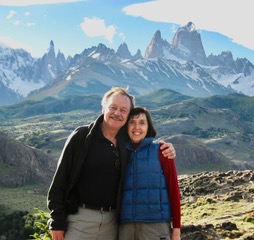 |
Hiking was another favorite pastime; especially in the Washington Cascades and the Colorado Rockies. He also loved to fly. Mike learned to fly gliders and got his pilot’s license at the age of 59. He was an active member of the Greater Boston Soaring Club where he served for many years as captain of a Puchacz glider. |
Mike was a gifted handyman and could fix just about everything in an old house, a vintage sailboat or an aging car. He played the cello in junior high school and took it up again 10 years ago. He and Margaret were intrepid travelers. They enjoyed following their daughter Emily’s international adventures and were always up for an adventure of their own.
Emily and Mark were the light of Mike’s life. He loved being a Dad, engaging his kids in many outdoor activities such as hiking, biking, skiing and sailing. He always had time for a conversation or an explanation; his patience was almost limitless. As adults, he admired them, respected them, and loved them deeply. Mike loved his wife and children most of all; his greatest regret was having to leave them.
His family is grateful for the skilled care, kindness and compassion they all experienced as he was treated at UMass Memorial Medical Center, Brown University Oncology Research Group, Dana Farber Cancer Institute and JHC Hospice.
A celebration of Mike’s life will be held at a later date. To those who want to make a donation in Mike’s name, his family suggests the Foundation Fighting Blindness or the Latin American Health Alliance.
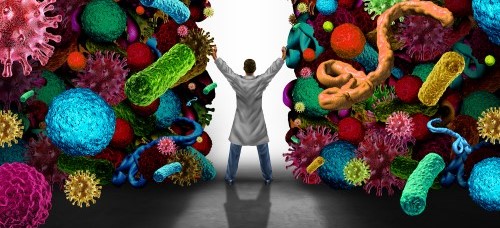
Our Mission: To address important biological questions relevant to a broad range of diseases and encompassing multiple levels of biological organization, including an understanding of how different pathogens affect their target organ systems.
Department Chair
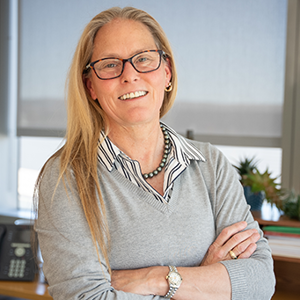
Beth A. McCormick, Ph.D. The Worcester Foundation for Biomedical Research Chair. Chair of the Department of Microbiology. Founding director of the Center for Microbiome Research.
Department Vice Chair
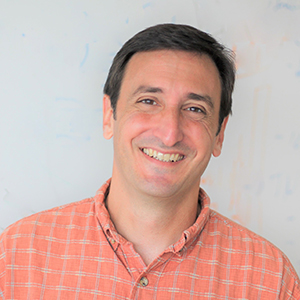
Chris Sassetti, Ph.D., Professor and vice-chair of the Department of Microbiology.
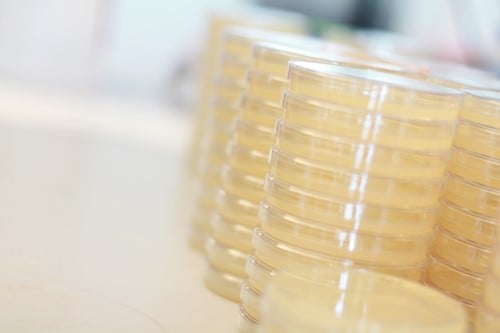
Investigators in the Department utilize multidisciplinary approaches that integrate genomic, proteomic, high-resolution imaging, and computational methodologies to characterize networks of host-microbe interactions at the molecular, cellular, and organismal levels.
Read more about the Department of Microbiology here.
Read about Department of Microbiology Research here.